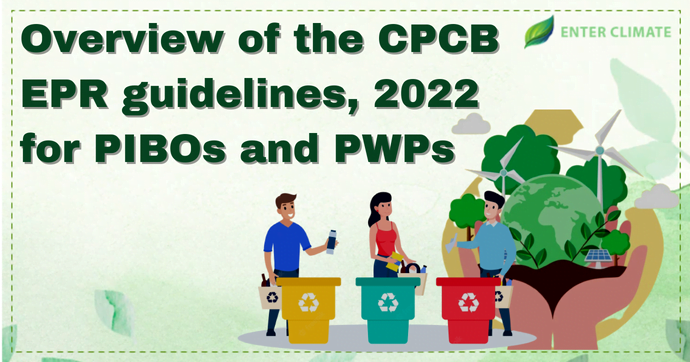Permission required to set up Shopping malls and Commercial/ Housing complexes in India
 03 Dec, 2022
03 Dec, 2022 
Shopping malls and commercial/housing are rapidly acquiring a central stage in urban India. Demand graphs for shopping mall space in India are lucrative. These establishments offer consumers the benefit of selecting from a myriad of choices of merchandise spread across various categories. But lately, shopping malls have become more than just avenues for conducting business and shopping. It is a place where people tend to spend time, primarily for three reasons – entertainment, dining and leisure. But before finalising setting up the shopping mall in India, it must be understood that proper planning and licensing are required.
Read on to learn about the detailed provision for blending these commercial properties into the spirited and grandeur environment.
Scope of the shopping malls and housing or commercial complexes in India
Despite the challenges, shopping malls and housing or commercial complexes in India are still expected to flourish in future. The increasing demand for office space from businesses will boost this development. Another factor for the demand for setting up shopping malls in India is the increasing fame of coworking spaces and serviced offices. The global shopping complex market size was pegged at USD 5,231.63 billion in 2021. Notably, this is expected to accelerate at a compound annual growth rate (CAGR) of 5.9% from 2022 to 2028.
Complete the process of setting up shopping malls and housing or commercial complexes
Following are the steps that elaborate the complete process of setting up shopping malls and housing or commercial complexes –
Determine the type of company/ownership
- One-Person Companies (OPC)
As the name suggests, OPCs have only one member as their sole shareholder.
- Private Companies
Private companies are the ones whose articles of association (AOA) restrict the free transferability of shares.
- Public Companies
Unlike private firms, public companies allow their members to transfer their shares to others quickly.
- Associate Companies
In associate companies, other companies hold a significant influence. This “significant influence” accounts for the possession of a minimum of 20% shares of the associate company.
- Government Companies
Government companies are those firms in which more than 50% of share capital is owned by either one or more state governments or the central government or jointly by both.
- Foreign Companies
Foreign firms are the ones incorporated outside India.
So before setting up the shopping malls and housing or commercial complexes, you’ve to decide which category it will fall into.
Proceed with establishing the Sewage Treatment Plant
Establishing a Sewage Treatment Plant is essential while setting up shopping malls and housing or commercial complexes. The following licences are mandatory for setting up STP –
- Consent Certificates from PCB for establishing an STP
The following documents are required for the consent certificate
- PAN card
- Authorisation letter
- The Aadhaar card
- Raw material list with daily MTD/monthly quantity
- DG specifications
- Industry Department Certificate
- Product/by-product list with daily MTD/monthly quantity
- Specifics on air pollution controls
- The layout plan/site plan
- Total construction area
- Municipality or industry license
- Project report
- Registration proof of unit
- Site plan
- Water bill
- Details on channelisation
- Water usage breakdown
- Total open land
- Fuel used, boiler typeand quantity
- Permission from the state’s groundwater authority
- Trade/Factory License
The following documents need for Trade/Factory Licence
- Duly filled Form 1
- Aadhaar card
- Layout plan/site plan
- List of directors
- AOA and MOA
- Bank account details
- Partnership deed
- Consent certificate form from SPCB/PCC
- Land deeds
Obtain mandatory certifications for setting up shopping malls and housing or commercial complexes in India
Besides setting up an STP, shopping malls and housing or commercial complexes require some necessary licenses. A detailed overview of the certifications and registrations needed is as follows –
Environment Clearance (EC) and Environment Impact Assessment (EIA)
EC is a compulsory clearance needed by all new and existing projects listed under the Environment Impact Assessment (EIA) notification.
The following documents are required for this purpose:
- Site/layout plan
- Detailed project description (including the project’s name, proposed area breakup, location, waste generation, water requirement, etc.)
- Proof of land ownership
- Proof of installed machinery
- ID proof of signatory
- Proof of mitigation options adopted
- Quality test report (wherever applicable)
- Proof of water connection and electricity
Consent to Establish (CTE)
The commercial or industrial units falling under the Orange, Red, Green and White categories must obtain CTE.
The documents required for obtaining CTE are –
- Signed undertaking
- Correctly filled application form of the concerned SPCB
- Site or layout plan with a roadmap
- Details of the unit’s manufacturing processes and sources of effluent discharge/air emission/solid waste/hazardous waste that may be generated
- Detailed project report
- Details of finished products
- Water balance, source of water and its required quantity
- List of machinery and the capital cost of the facility (land, building, and plant machinery)
- Land documents such as rent/lease agreement
- Consent fee (as applicable)
- Industry registration documents
Consent to Operate (CTO) for setting up shopping malls and housing or commercial complexes
All operating units and the units beginning operation after being set up are required to get Consent to Operate.
The list of documents needed for CTO includes the following –
- Balanced sheet certified by a CA
- Correctly filled application form of the concerned SPCB
- Copy of CTE issued
- Lab report of the trade emissions and effluents
- Provide details and proof of air and water pollution control devices and solid waste/hazardous waste management facilities
- Site plan
- Any other document mentioned in the CTO application form
- Copy of any permission needed from the state government
Trademark Registration
The entrepreneurs or owners seeking to set up shopping malls and housing or commercial complexes must obtain trademark registration.
The following documents are required depending on the type of company you own –
Individuals and Sole Proprietorships
The documents mentioned below are needed to register a trademark in proprietorship’s name:
- Signed Form-48. It is an authorisation from the applicant to a Trademark Attorney. The form is submitted for filing the trademark application on her/his behalf.
- A copy of the logo, preferably in black & white. The trademark application can be submitedfor the word if the logo is not given.
- Address proof of the proprietor or individual
- Identity proof of the proprietor or individual
Partnership / LLP / Company
In the case of an LLP or partnership company, the applicant needs to submit the following documents:
In the case of an LLP or partnership company, the applicantneeds to submit the following documents:
- Signed Form-48
- Copy of logo (optional)
- Udyog Aadhar Registration Certificate
- Identity proof of signatory
- Partnership deed or incorporation certificate
- Address proof of signatory
Other Applicants
In the case of an LLP or partnership company, the applicantneeds to submit the following documents:
- Signed Form-48
- Copy of logo (optional)
- Udyog Aadhar Registration Certificate
- Identity proof of signatory
- Partnership deed or incorporation certificate
- Address proof of signatory
Ground Water Boring Permission
To sustainably manage the water supplies in the country, groundwater abstraction guidelines have been established. These guidelines mandate that shopping malls and housing or commercial complexes acquire CGWA water boring permission. This is mandated to control groundwater extraction and preserve the nation’s limited groundwater resources.
The following documents are required for the same –
- CTO issued by the specific SPCB under the Air (Control and Prevention of Pollution) Act, 1981 and the Water (Control and Prevention of Pollution) Act, 1974[1]
- CTE issued by the concerned SPCB under the Water (Control & Prevention of Pollution) Act, 1974 and the Air (Control & Prevention of Pollution) Act, 1981
- Map of the location or site plan
- The flow chart of recycled water usage and water requirements at every stage (only for groundwater withdrawal). This detailmust be in tabular format.
- Water requirement assessments as per the CPHEEO guidelines, including reusing and recycling treated water.
- In case of establishment takes groundwater at 500 m3/day, a detailed report on groundwater conditions around 5 km of the region is necessary.
- Letter of authorisation from the concerned authority
- Quality report from the governmental-approved lab on all exiting tube wells
- Proposal for the rainwater harvesting/artificial recharge by the norms or criteria for proposal evaluation.
Trade License
Issued by the state governments or municipal corporations to newly set up shopping malls and housing or commercial complexes, trade licenses are necessary.
The documents stated below must be submitted along with the application for obtaining a trade license:
- Business Incorporation Certificate
- Business PAN card
- Aadhaar card, if the applicant is an individual
- Lease agreement with the owner of the property
- Property tax payment receipt from the municipality
- The layout of the property
- No Objection Certificate from neighbours in the premises where the shop is located
- Loan sanction document
- Occupancy Certificate
Shops and Establishment Registration
All business operators must apply to register under the shops and establishments act to get the privileges.
The following documents are required for Shop and Commercial Establishment Registration:
- Photo of the owner
- PAN/Aadhaar card/Driving License/Voter Id
- Photo of the shop along with owner
- Rent agreement, if rented
- ROC
- Electricity bill
- MOA (Registration Certificate)
- Registered address and proof thereof
- List of the trustees/Members of the Trust
- Resolution of society regarding starting of business
- Nomination of directors (Resolution)and list of directors
- List of the member and chairpersons of the cooperative society
- Commencement certificate, Certificate of Incorporation under the Company Act
- Copy of Registration Certificate issued by Charity Commissioner
- Partnership deed that contains the signature of partners, name of partners, company’sname and percentage of partnership
- RTO transport permit
- RBI permission copy
- Copy of collector’spermission
- Food licence from the concerned authority
- License from Agriculture Department
- NOC from Police Department for the cybercafe
- The Food and Drugs Administration License
- Licence from Police Department for security services
- IEC certificate for Import-Export business
- NOC by the municipal corporation for masala and flour mill
- NOC from Fire Brigade, Municipal Commissioner, Police Department and Collector
- Copy of excise license for wine shop, restaurant and beer bar
Professional Tax Registration
Professional tax is a direct tax imposed on persons earning an income by either employment, practising a profession, trade or calling.
- For Individual/Proprietorship
- Rent Agreement/Electricity Bill (In case of owned business premises or shop, an electricity bill is needed, and a rent agreement for any other case)PAN card of individual Two passport-size photos of the proprietorAadhaar card of the person Signature on blank paper for verification and record
- Bank Statement/Cancelled cheque
- For any other entity
- Article of Association (AOA) and Memorandum of Association (MOA)
- DIR – 12 (If any)
- Rent Agreement/Electricity Bill (In case of owned business premises or shop, an electricity bill is needed, and a rent agreement for any other case)
- Director’s PAN of Company
- Company’s PAN
- Aadhaar card of the director
- Authorisation letter by signatories
- Two photos of authorised signatories/persons
- Board resolution passed for this purpose
- Bank statements/cancelled cheque
- Signature on blank papers for record and verification
Certificate of Occupancy
Local government authorities and agencies issue occupancy certificates. Furthermore, the certificate declares that the set-up of the shopping malls and housing or commercial complexes is according to the plans approved by the respective authorities.
The following documents are required to obtain the occupancy certificate –
- Project completion certificate
- Project commencement certificate
- Fire and pollution NOC
- Sanction and building plan
- Photo of building
- Area calculations
- Copy of building’s sanctioned plan
- Tax assessment
- Photo of solar panel and rain harvesting
Drugs and Cosmetic License
The Drugs Control Department supervise the sales and manufacture of drugs and cosmetics. The government has stipulated several drug laws under which the State Drug Controller deals with licensing both the sale and manufacturing premises of cosmetics and drugs. Thus, the license is necessary to set up shopping malls and housing or commercial complexes.
The following documents are required with the application form:
- Constitution of the firm (AOA/MOA)
- Copy of property paper (if owned property)
- Photo ID proof of partner/proprietor/director
- Copy of rent agreement (if rented property)
- Refrigerator invoice and details
- The site and key plan of the premises
FSSAI Food License
FSSAI registration is compulsory for anyone engaged in the food business. Food manufacturing, processing, distributing, packaging or selling requires an FSSAI registration to run the business. Thus, to have a food court or any eatery, you must obtain an FSSAI food license before setting up shopping malls and housing or commercial complexes.
The following documents are required for the FSSAI Food License –
- Identity proof documents such as –
- Department-issued ID,
- Ration card
- PAN card
- Senior citizen card
- Passport
- Driving License
- Aadhaar card
- Voter ID card
- Supporting documents like NOC by Panchayat/Municipality, Health NOC
- Photo ID of the Food Business Operator
Additionally, one must obtain the following licenses and certificates also
- Permissions for alcohol or tobacco selling from competent local authorities
- Permanent Account Number
- Permissions for banquet hall from competent local authorities
- Tax Account Number
- Industry-specific permits and licenses
Conclusion
Setting up a shopping mall and housing or commercial complexes is an exhilarating journey, and so are the benefits. Shopping malls come with high rental income and high land appreciation (walls enhance the entire locality). Additionally, these commercial complexes offer a strong brand image to their promoters (because it soon becomes a local landmark). But establishing the shopping malls and housing or commercial complexes must be done in an environmentally sound manner.












